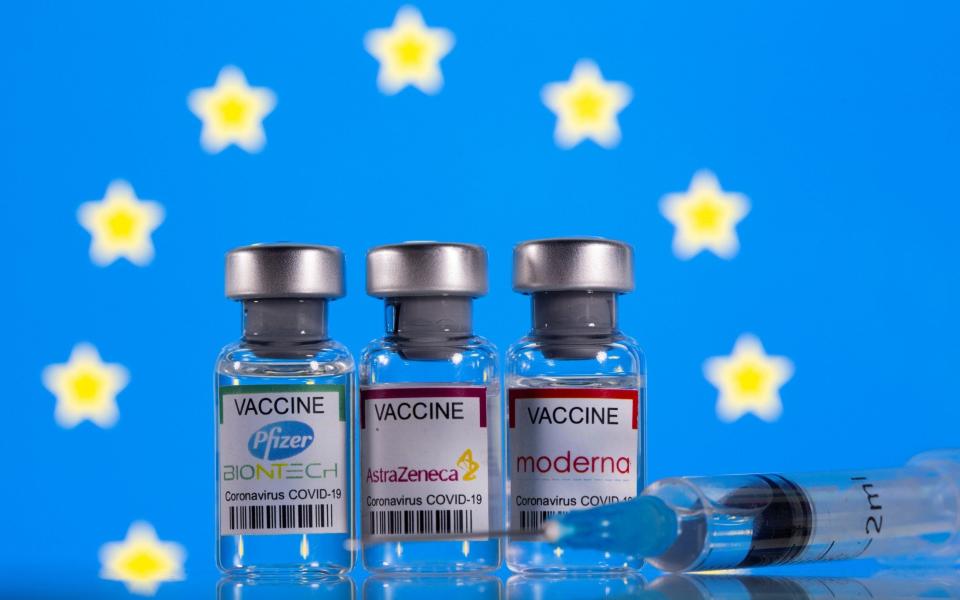Brussels lobbyists waged war against Pfizer jab in favour of European rivals

Lobbyists in Brussels waged a campaign against the rollout of the Pfizer-BioNTech Covid vaccine by claiming it was insufficiently European, a new book by the jab's inventors has said.
Opponents allegedly told politicians last year that they should not order doses of the injection because BioNTech, a German company, had teamed up with US behemoth Pfizer rather than working with another company based in Europe.
According to the book - written by journalist Joe Miller in collaboration with BioNTech's founders Dr Ugur Sahin and Dr Özlem Türec - lobbyists branded Pfizer "the epitome of cold capitalism" and claimed: "If we give one euro to CureVac, or Sanofi, or a European company, it is one euro for Europe. If we give it to BioNTech, 50 cents will always end up in the US."
It is not known what impact the lobbying effort had. However, the European Union only ordered doses of the Pfizer-BioNTech vaccine last November once efficacy data for the jab had been published - nearly five months after the UK and US.
Brussels is instead said to have favoured vaccines developed by French company Sanofi and German business CureVac. Both are yet to come to market.
BioNTech bosses claimed that there was a lack of support from the EU when they were developing the jab, saying the business felt "on our own" according to the book, The Vaccine.
Germany finally provided BioNTech with a €375m (£320m) grant last September - by which point, the authors say, the company had already "spent a couple of hundred million euros of its own money on raw materials and manufacturing, establishing Europe’s first dedicated Covid-19 vaccine production site without so much as a pre-order from the EU itself".
Oliver Henning, BioNTech's senior vice-president of operations, is quoted saying that the EU's strategy forced businesses into damaging rivalry.
The book says: "Aside from an advance purchase of doses, it would have been useful, says Oliver Hennig, if the bloc had said: ‘Okay, we will buy enough fill-and-finish capacity for our region, and we’ll give it to whoever is leading.’ Instead, companies had been left to compete over limited resources."
The EU also took longer than other countries to approve the jab, which has since become the mainstay of its vaccine rollout. The European Medicines Agency suggested it was taking longer than the UK's MHRA as its procedure required more evidence and safety checks.
But Constanze Blume, BioNTech’s vice-president of global regulatory affairs, rejects those claims in the book, saying: "We only had one clinical trial and we only had one or two manufacturing sites – how can we generate different sets of data?"
New criticism of the EU's approach to getting jabs out to member states comes after much speculation over battles in Brussels over the vaccine rollout.
Earlier this year, reports claimed that Emmanuel Macron had sought to block the EU from ordering too many doses of the Pfizer-BioNTech jab due to expectations French vaccine makers may start to play a bigger role in the jab rollout in future.
German politician Karl Lauterbach tweeted: "The French insisted for the number of [BioNTech/Pfizer] doses to not be too large compared to [the number of Sanofi doses] although this vaccine was far from ready.”
France's minister for European affairs, Clément Beaune, strongly denied those claims, labelling them as "unacceptable and false".
